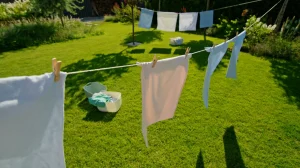When temperatures drop, many homeowners grapple with the question: is it more energy efficient to leave the heat on or turn it on and off as needed? This debate has been a hot topic for years, and there are various schools of thought on the matter.
So, we’re delving into this common question, exploring whether these energy-saving methods can actually reduce heating bills.
Leaving the heating on all day vs. turning it off
According to Energy Savings Trust experts, leaving your heating at a low temperature all day may not be the most cost-effective approach. The reason lies in potential issues with home insulation. This is especially true if your house is older or prone to draughts that allow heat to escape through windows and doors.
Continuously running your heating system makes your boiler work tirelessly to maintain a steady temperature. Inadequate insulation compounds the problem, forcing your boiler to exert even more effort to keep your home warm. If your boiler is inefficient, the energy consumption worsens the situation.
However, the answer to the question, ‘Is it better to have heating on low for longer?’ isn’t entirely straightforward…
Some argue that keeping the heating on all the time could save money in the short term. This perspective stems from the idea that turning the heating off causes condensation to accumulate within the walls. Surprisingly, this condensation can conduct heat outside your home. This can then cause you to lose heat more rapidly and consume more energy.
So, is it better to have the heating on low constantly?
The answer to this question depends on various factors, such as insulation, climate, and the efficiency of your overall heating system. Striking the right balance to match your comfort and energy efficiency requirements is crucial. By incorporating some of the tips outlined below, you can start experiencing improved warmth and reduced heating costs in your home.
Insulate Your Home Properly
Instead of relying on constant low heat, it’s more cost-effective to improve your home’s insulation. Doing so will prevent heat loss and ensure that your home stays warmer for longer. Proper insulation can also reduce your overall heating expenses, making insulation a better long-term investment.
To insulate your home effectively, start by identifying areas that require attention, such as the attic, walls, and windows. Use materials like fibreglass, foam board, or cellulose insulation to significantly enhance your home’s thermal performance. Also, consider installing double glazing and sealing any gaps or cracks around doors and windows. Ultimately, proper insulation around your home will lead to energy savings and create a more comfortable living space.
Invest in a Programmable Thermostat
Modern programmable thermostats offer the perfect blend of comfort and energy efficiency. These devices let you schedule your heating system to turn off when you’re away or asleep and back on when you need it. This smart approach means you can still enjoy the benefits of a warm home, all while cutting your energy expenses. Ultimately, programmable thermostats enable you to create heating schedules that fit your daily routine.
Similarly, our FoxRadar Oil Level Monitor lets you keep an eye on your heating oil consumption at a glance.
Practice Zone Heating
Zone heating presents a cost-effective strategy to optimise your energy usage. Rather than heating your home all day, focus on specific zones or rooms that see the most activity. Zone heating reduces your overall energy consumption while keeping your comfort levels high in the areas that matter most.
Keep your Heating System Well-Maintained
It’s important to ensure your heating system is well-maintained to efficiently keep your home warm. Regular maintenance not only conserves energy but also extends the lifespan of your heating system. The added bonus then is that this reduces the need for costly repairs or replacements. This sustainable and cost-effective choice provides the comfort you need while keeping your heating expenses in check.
Check out our oil boiler services carried out by our OFTEC-registered engineers.
Key takeaways: is it better to have heating on low all day?
Determining whether it’s more energy efficient to leave heating on low all day doesn’t have a one-size-fits-all answer.
In colder regions, investing in robust cavity wall insulation and a high efficiency boiler may save energy and decrease energy bills. Milder climates will instead benefit from a programmable thermostat and zone heating for comfort and cost savings.
By considering the specific factors at play in your home, you can find a balance between maintaining a comfortable temperature and minimising heating costs. This mindful approach not only fosters a more sustainable living environment but also enhances overall comfort in your home.
Quick tips for immediate savings
Get started boosting your heat efficiency right away with these simple tips:
- Use draught excluders on doors and windows
- Close curtains at night to retain heat
- Add radiator reflectors to direct heat back into the room
- Check and bleed your radiators to ensure they’re working efficiently
For more money-saving advice, read our guide on how to cut costs and save money at home.








